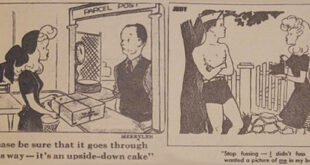Applying for Medicaid for long-term care in a nursing home is a complicated matter. This article will limit itself to describing the basic eligibility requirements.
The eligibility requirements break down into four categories.
Medical Eligibility
First you have to demonstrate that you meet the Determination of Need score, also known as the DON score, which establishes whether or not someone actually requires long-term care in a nursing home. This assessment may be administered by Catholic Charities, nursing homes, and many other organizations.
Income Eligibility
The income eligibility requirement is to determine if your income exceeds the private cost of care. For example, if the private cost of care in a nursing home is $8,000 a month and your income is also $8,000 a month, you have no need for Medicaid because your income will pay the monthly nursing home costs. For most middle-class Americans, there is not enough monthly income to meet an $8,000-a-month nursing home bill, and therefore Medicaid eligibility is a necessity. Please note, income eligibility varies depending on whether or not someone is single or married.
Resource Eligibility
Resource eligibility requires an examination of all of the assets that you have had over the last five years, but focuses on what there is at the time of the application. At that point, Medicaid will break assets down between exempt assets and countable assets. Exempt assets are those that applicants are allowed to keep, such as the $30 a month resource allowance, personal belongings, life insurance that has no cash surrender value, life insurance that has a face value of no more than $1,500, automobile, etc.
Countable assets are everything else that is considered to be nonexempt. However there is a limit on the amount of countable assets one is allowed to have — that limit is $2,000 a month for a single individual, and $109,564 for a married couple, where one spouse is in a nursing home and the other spouse can continue to remain in the community. Please note, there are many exceptions to this general rule and it’s important that you find a law firm that is well-versed in these exceptions in order to preserve as many assets as you can.
Penalty Eligibility
Penalty ineligibility arises from what are called “uncompensated transfers” by the Medicaid applicant. Uncompensated transfers are those where the individual made a transfer but did not receive a transfer of equal value in return. Gifts are the simplest example of an uncompensated transfer — the applicant gave something away but did not get something back in return. There are penalties associated with uncompensated transfers, and the penalties are not imposed, or do not begin, until the applicant is in a nursing home or at least five years have passed since the uncompensated transfer. Medicaid audits all transactions during the prior five-year period, thus there is a five-year audit that is quite substantial.
If all of this seems confusing, it’s because it is. Qualifying for Medicaid for long-term care in order to cover nursing home costs is very complex and requires the expertise of an elder law attorney who focusing focuses on Medicaid asset protection planning and eligibility.
To contact me, call 847-292-1220, e-mail abferraro@abferrarolaw.com or visit http://www.abferrarolaw.com.
 Fra Noi Embrace Your Inner Italian
Fra Noi Embrace Your Inner Italian







